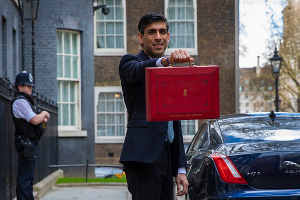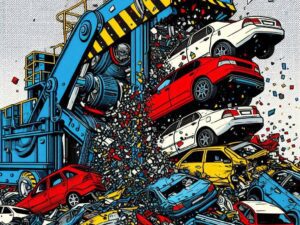Motorists’ Vs The Budget

The latest UK Budget has provided some positive news for the motor trade and motorists in general. Chancellor Rishi Sunak has unveiled a number of measures aimed at improving the nation’s road infrastructure and also put a freeze on various costs.
Rishi Sunak’s decision to freeze duty on fuel is a welcome announcement, especially given the soaring prices at the pumps, which have seen forecourt prices for a litre of petrol closing in on £1.50 in many areas. This is the twelfth consecutive freeze on fuel duty, leaving the cost at its current level of 57.95 pence per litre.
However, industry spokespersons suggested that the Chancellor may have taken the opportunity to temporarily cut this figure, especially given the soaring oil and gas prices which have seen consumers take a huge hit both in domestic energy bills and at the pumps.
In real terms the decision not to raise fuel duty provides a saving of approximately 1.5 billion pounds per year, though drivers won’t see that as much consolation when fuelling currently!
Given other spiralling costs which also includes rising insurance policy premiums and the cost of new and used cars, money saved by motorists at the pumps could well have been pumped into the economy in other ways.
In a positive move for HGV drivers, an industry also seeing record shortages and related issues, the Chancellor also confirmed that the HGV Levy will be suspended until August 2023 and Vehicle Excise Duty rates will not go up until at least the middle of 2023.
One way that the government is considering boosting driver numbers is by improving working conditions – funding has been provided to overhaul and improve lorry parks and related facilities, which is welcome news.
The Chancellor also confirmed that around £24 billion will be invested to improve both local and national roads and related infrastructure, with around £5 billion allocated to tackle the increasing pothole menace.

Another pot of money will be provided to regional government to help improve transport networks, such as better bus lane facilities and city and regional transport improvements; areas such as Liverpool and Manchester have specifically received funding to scale up their local transport links.
In a topical announcement, Mr Sunak confirmed funding for zero emission vehicles, with around £6 billion earmarked for transport decarbonisation and an improved electrical vehicle charging network.
The UK government has committed to the phasing out of new petrol and diesel cars within a decade, and all diesel vehicles within twenty years, so any monies put forward to help this process will be of great help.
Critics suggest that much of this funding may not be enough, with massive concerns remaining over the huge number of local roads requiring maintenance or upgrades, and the added issue of charging points and the underlying electrical grid improvements necessary to get everyone into electric cars within the foreseeable future.






